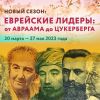Last week, Booknik read books on the love for Israel, on alternative Israel, and on a unique case; discussed an exhibition; visited the Holocaust Museum, a design museum, and a centenary celebration; walked the streets of Paris, and Jerusalem; investigated the most ancient profession; learned B-words; and ate couscous. Booknik Jr. watched Alice in Wonderland, had a walk in Odessa, dropped by the Vienna Clock Museum, read some Jewish tales, and poems by Lea Goldberg, waved bye-bye to a horsie, and learned many new things about magic spoons.
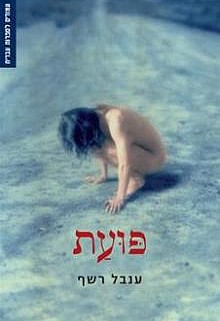
Puat, by Inbal Reshef
The novel is set 3,000 years ago, about that time when, according to the Bible, Solomon initiated the Temple’s construction, and the Jewish state was at the height of its power. Yet in Canaan described by Inbal Reshef there are neither Solomon nor the Jewish kingdom. Our Russian experience tells us that most of those exercises in alternative ancient history serve some quite contemporary political goals. Booknik reviewer Marina Karpova reads Puat, and wonders why Inbal Reshef had to invent so unsympathetic ancestors for the Jews.
I Don’t Know Any Other Country
The Zion Elders’ Land Guide, by Igor Guberman and Alexander Okun
This is a book about love. This love may not seem traditional, by Russian standards, and it may be uncomfortable or shameful to confess. This is the book about love to the Jews and Israel but this love is not heavy-handed or hard-won. Instead, it is easy, and ironic. It can understand everything, and forgive everything. It is very humane. One can love a woman this way, who has been sharing your life for the last 30 years, and you know all her shortcomings, weaknesses, and follies. It really does not matter that at times she may be selfish, cantankerous, and not so easy to be with, that in some aspects she may be too corpulent, and that she cannot cook like your mother could. Love is hard to explain, and some imperfections may cement it. Booknik reviewer Irina Zeltsman reads this book written by a poet and an artist about their vision of Israel.
The Notes of an American Observer
A Unique Case, by Pavel Lembersky
The Russian Award is the international literary contest of foreign authors writing in Russian. This year, the long list included 39 works, and there is A Unique Case, by Pavel Lembersky, in the Novel nomination. Journalist and author Vadim Yarmolinets reviews it for Booknik.
…and many other curious confessions in the Books & Reviews section.
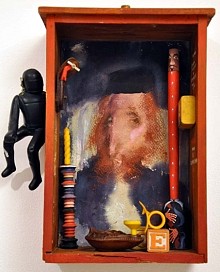
These days, the Kayma Gallery in Jaffa features the art show of the Booknik’s faithful contributor Nekod Singer The Dump of Myths. The series of 3-D artifacts is presented there, and each of them is set in a writing desk or cupboard drawer, and done in mixed media. The artist timed his show with the 20th anniversary of the Neo-Eclectics Manifesto published by him and Gali-Dana Singer in Israel, both in Russian and Hebrew. Alexander Averbuch attended the art show, and asked Nekod a number of questions regarding the event, and his creative life in general.
In Memoriam Yelena Schwartz
“This is an attempt to gather not as much as thoughts—what thoughts could there be?—but your own self after a catastrophe. The death of Yelena Schwartz seems a natural disaster to me that alters the world map irrevocably. Shortly before the present millennium some self-proclaimed prophetess announced in a newspaper that after 2000 there will be no more Petersburg, the city will be submerged. She was wrong only by a decade.” Gali-Dana Singer remembers poet Yelena Schwartz.
…and many other mysterious mythologies in the Articles & Interviews section.
The Booknik’s Israeli reporter Ariel Bulstein did not waste time last week.
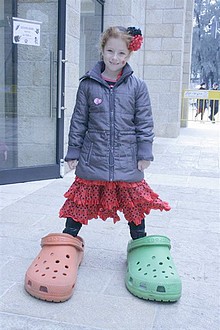
He walked the streets of Jerusalem during Shushan Purim celebrated on the 15th day of Adar, the next day after the “usual” Purim. The entire nation tries to get back to work after hard sticking to Purim requirements, including eating, drinking, and making merry until they are unable to discern evil Haman from blessed Mordecai. Yet in Jerusalem, they are only starting to celebrate. Some foreign tourists in the streets are clearly lost. No one warned them probably that this serious and uptight city might turn into an unrestrained burlesque in a blink of an eye.
Benzion Netanyahu is 100
He also attended the celebration in the Menachem Begin Center, dedicated to Prof. Benzion Netaniahu’s Centenary. The man would have been an outstanding figure even without one of his sons, Yoni, becoming a legendary war hero, and another one, Binyamin, the Israeli Prime Minister. The Netaniahu family patriarch was a luminary both in history and public activities. He could have become a poet in his early years but he learned soon enough to what extent the literary world depends on the dominant trends. In his subsequent eighty plus years he never trained himself to bow to those trends.
The Kingdom of Design with a Palace Inside
Finally, he went to the Design Museum Holon to see The State of Things—Design and the 21st Century exhibition. The museum opened on January 31, 2010, designed by Ron Arad, “the best known Israeli designer,” and the museum’s creative director Galit Gaon put the exhibition together. Both of them believe that “the whole world is design,” so their dream museum should follow this example and be interdisciplinary. At this junction, no one knows what will be featured in it most prominently, jewelry or furniture, textiles or graphic works, ceramics or glass. Only the future will show what the world is coming to, and the museum will follow the lead.
…and many other penultimate peregrinations in the Events & Reports section.

Hanna Hannah, directed by Hanna Schygulla
At the 60th Berlinale, they presented the tribute to Fassbinder’s favorite actress Hanna Schygulla. She introduced her own works that she directed, produced, wrote, and sometimes even photographed. The one quite unexpected work of hers was the short documentary Hanna Hannah. This film tells about the memory of Holocaust that has become a part of Berlin topography. It is shot in the Berlin Holocaust Memorial entirely, with the camera traveling through the labyrinth that looks like a grotesque Jewish cemetery, between blocks of cement, feeling its way through them, and catching glimpses of the sky above. This slow sliding is minimalistic, and there are almost no words. The black-and-white film has only a relative seed of a plot when Ms. Schygulla tells a story of her own name, thus making the reason for this walk clear.
Couscous is the Mother-In-Law’s Revenge
Untiring Keren Pevzner met an old Libyan woman who had given her son in marriage a while ago. The woman was still not quite herself after that entire happy bustle, and she took pleasure in sharing finer points of etiquette with Keren. This is why you will now know many things about couscous. Including the reason why, before going to huppah, a bride receives a spoonful of couscous from her future mother-in-law that the older woman cooked herself.
On the Most Ancient Profession in Jewish Context: Part 1 and Part 2
As soon as prostitution is called the most ancient profession, it is a small wonder that we find it mentioned even in the very first book of Torah, Bereshith. Booknik presents his FAQtes-Schmaktes in two parts where Marina Karpova and Yevgeny Levin speak about prostitution and Jews in the times both immemorial and new.
…and many other captivating customs in the Columns & Columns section.
Hebrarium, the Lexicon of Jewish Whatnots: B2
When did they start to speak Hebrew? How many times should one pray for a sickness to leave? Why does a Jew need his beard? Watch Hebrarium on B: Eliezer Ben‑Yehuda, Bikkurim, Bikur Cholim, Bimah, and a beard.
…and many other wonderful whatnots in the Video Blog section.
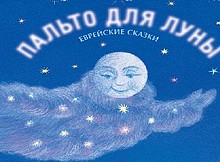
A Coat for the Moon and Other Jewish Tales, collected by Howard Schwartz and Barbara Rush
There is this children’s game, the Chinese whispers. Kids sit side by side, one whispering a word into his neighbor’s ear, and the next person passes the message on, until the last one in line receives it, and says it aloud. Usually, the initial word comes out corrupted beyond recognition. The folklore is like this, especially Jewish, only the whole world is playing, and the game goes on for centuries. Jews were not glued to one spot, and they carried the stories they had heard with them, from one country to another. The stories mutated, and their different versions are now spread all over the world. With the support of the AVI CHAI Foundation, the Text Publishers are now presenting the book of Jewish tales. The most interesting stories are collected in it, the ones Jews told in different countries for centuries, and Booknik Jr. reprints one of those.

Hamefuzar miKfar Azar, by Lea Goldberg
Everyone knows him, this funny man with a frying pan instead of a hat on his head. You, your parents, your grandparents, and maybe some great-grandparent laughed at the misadventures of that odd character. Samuil Marshak’s What an Absent-Minded Guy was first published almost 80 years ago, in 1930. But what happened to the guy after his safe return to Leningrad? Will you believe me if we tell you that he emigrated to Israel, and learned Hebrew only to become one of the favorite characters for Israeli kids? The famous Israeli poet Lea Goldberg reworked the poem by Marshak in Hebrew, and drew the illustrations, and now Booknik Jr’s contributor Yelizaveta Guller reads the 46th printing of this book.
Ships Sail in the Sky in Odessa
Miracles are usual in Odessa. In the fall, city apartments are filled with ripe grapes’ aroma, and you can pick a dark bunch of them right from one’s window. In Odessa, the sun shines 300 days a year, the summer is six months long, and you can reach the sea in less than an hour from any place in the city. The sea is, of course, the major attraction. Even if you were going to your music classes, you will find yourself at the beach. Yanina Zheltok tells our not-very-advanced-in-years readers about the city without which the world would have been a much duller place.

If you walk along narrow medieval streets in the old Jewish quarter of Vienna, south of Judenplatz, you will come across one of the oldest houses in the city, the Harpist's House, Harfenhaus. For almost 90 years, there is the museum of the most interesting human creations, the clocks. They are not just sets of intricate springs, and ratchets but the people’s old friends, and helpers, the products of sophisticated thought, and hard work. Yevgeny Yepishin tells about the Vienna Clock Museum, and the time in general.
So Long, Horsie!
Le cheval sans tête, by Paul Berna
Jean-Marie-Edmond Sabran AKA Paul Berna (1908—1994) wrote crime stories, science fiction, and even horror novels. Yet he is famous for his book for children that is known in English as A Hundred Million Francs. The book is set after the war, and the group of kids in a small French town has only one toy, the headless horse on wheels. No one seems to be interested in this old piece of junk, but the horsie has its master. He is a grown-up man but somehow he wants his toy back. He is ready even to pay a lot of money for it. Booknik Jr. is happy to provide an excerpt.
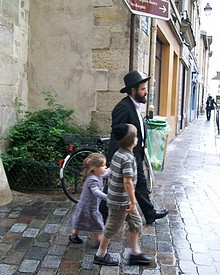
If you find yourselves in Paris with kids, pick a hotel close to Le Jardin du Luxembourg where you could spend an entire day. A huge playground is there, with a round pond where radio-controlled yachts are rented, with merry-go-rounds, donkey and pony rides, and even a puppet show. In summer, there even is a real apiary in downtown Paris, where you can meet the bees. Many bakeries and cafes are situated around it, where you could buy a famous baguette, and give it to your kids who would gnaw on it right from its paper bag like real Parisians. This is only the beginning of a wonderful walk in Paris devised by Nellie Shulman for kids and their parents in view of many an adventure they might have there.
Magic Spoons at the Exhibition Center
“You may not agree with me,” says the Booknik Jr. editor Alexandra Dovlatova-Mechik, “but I will say that the Exhibition Center in Moscow is the most repulsive place in the world. The wind always blows there, the space is too spacious for its own good, and there are just too many people. Who would think of setting a book fair in a place like this? Show me this person.” She is justified in her irritation, for she spent an entire weekend at the Books of Russia fair, as her children wanted to cut their own postcards there, find the book about Findus the Kitten, and, most importantly, to attend the Eshkol Project’s matinee, supported by the AVI CHAI Foundation. The event was called The Whole Truth about Magic Spoons. Have you ever noticed any peculiar habits of spoons? Any magic properties maybe?
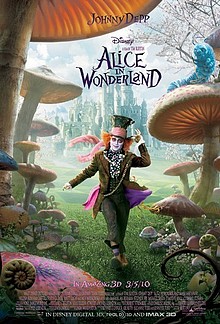
Alice in Wonderland, directed by Tim Burton
You will not have to ask your parents to go watch this movie with you. They will grab you by the arm, and drag you to the cinema themselves. Even if you scream at the top of your voice that you are afraid of what they show there, like Booknik Jr. did. “If you are, just close your eyes,” was his only consolation from his parents who wanted to see the film that badly. Yet it will not be scary at all. It will be— well, curious. Your parents will fidget, and exchange glances. Then it will become even curiosier. Your parents will mumble something unintelligible. Their point is easy to see. They thought this heap of weirdness would produce something much weirdier but this never happens. The weirdest thing has already happened to them, they have grown up. Iraida Stepnova watches Alice in Wonderland, and promises wonders to kids that their parents will not get.
…and many other interesting intentions at Booknik Jr., also known as Family Booknik, our own web site for kids and their parents.
The Jewish Incunabulae
Books may have wonderful adventures, intricate and multi-layered, for books travel themselves, and suggest routes for human thoughts and acts. Booknik thought about it on March 10 when he attended the first seminar in the series organized by the Eshkolot Project, supported by the AVI CHAI Foundation. The next event will take place on March 17, and Jewish incunabulae will be discussed. They were the first printed books produced at the interface of two cultures, the 15th century European publishing, and the literary monuments in Semitic languages. The Booknik video presents Semyon Yakerson who tells about the truly mysterious circumstance of discovering the most ancient Jewish incunabula.
Oh what a life! Booknik and Family Booknik are supported by the AVI CHAI Foundation.









